- Shadi Habib Allah: Put to Rights
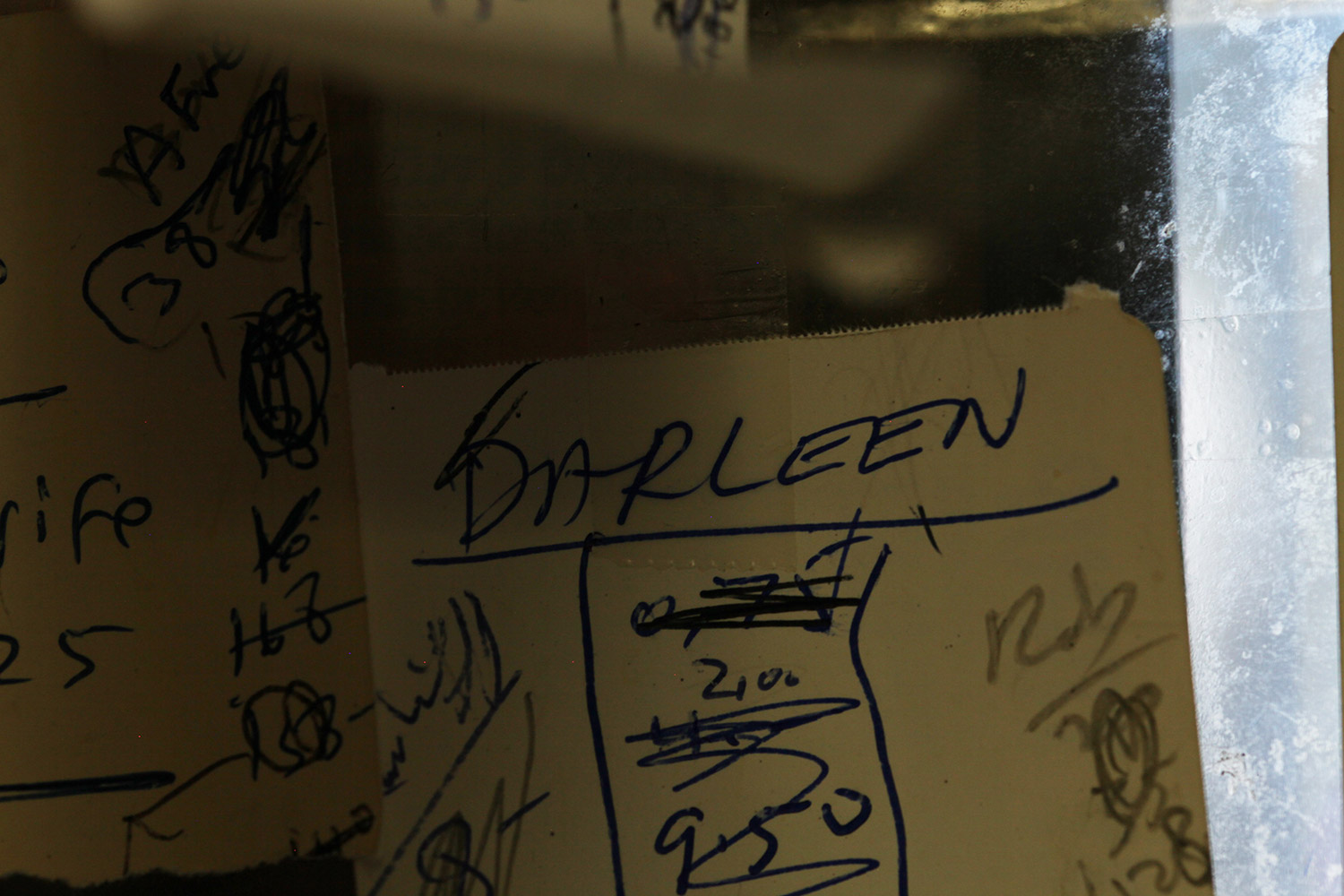
Shadi Habib Allah, 5081 35, 2018. Courtesy of the artist.
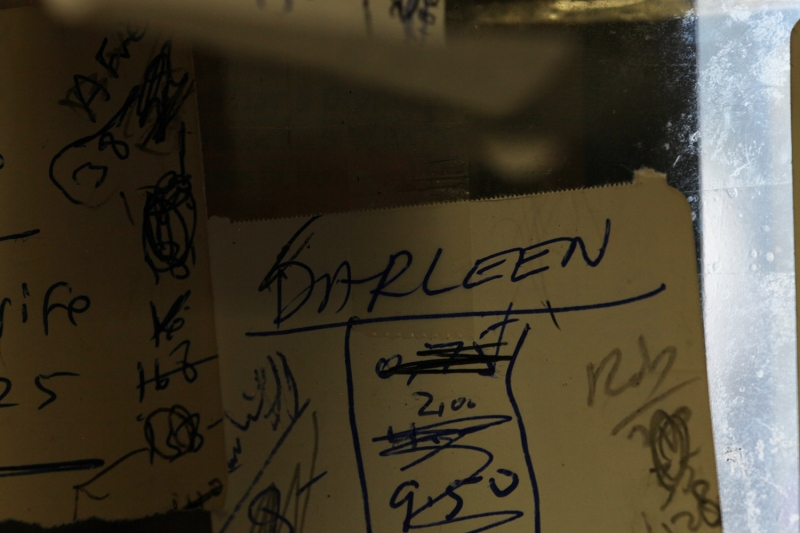
Shadi Habib Allah, 5081 35, 2018. Courtesy of the artist.

Shadi Habib Allah, Put to Rights, installation view, 2018. Photo: Useful Art Services
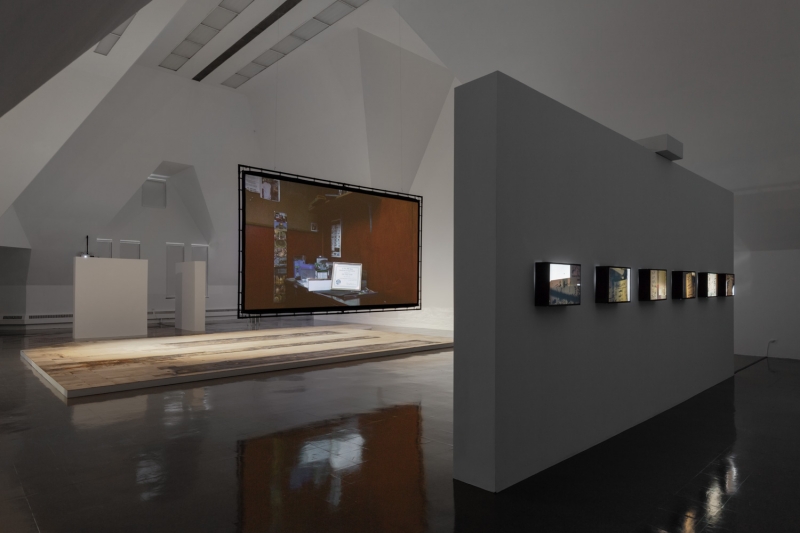
Shadi Habib Allah, Put to Rights, installation view, 2018. Photo: Useful Art Services

Shadi Habib Allah, Put to Rights, installation view, 2018. Photo: Useful Art Services
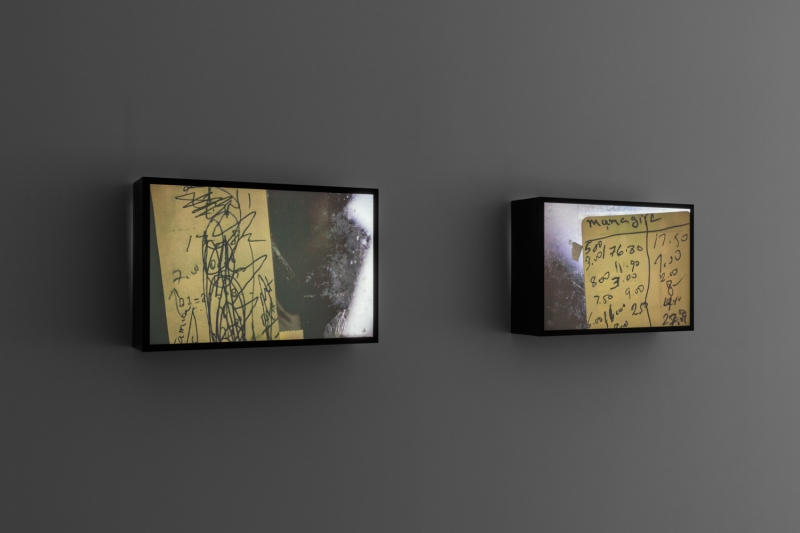
Shadi Habib Allah, Put to Rights, installation view, 2018. Photo: Useful Art Services
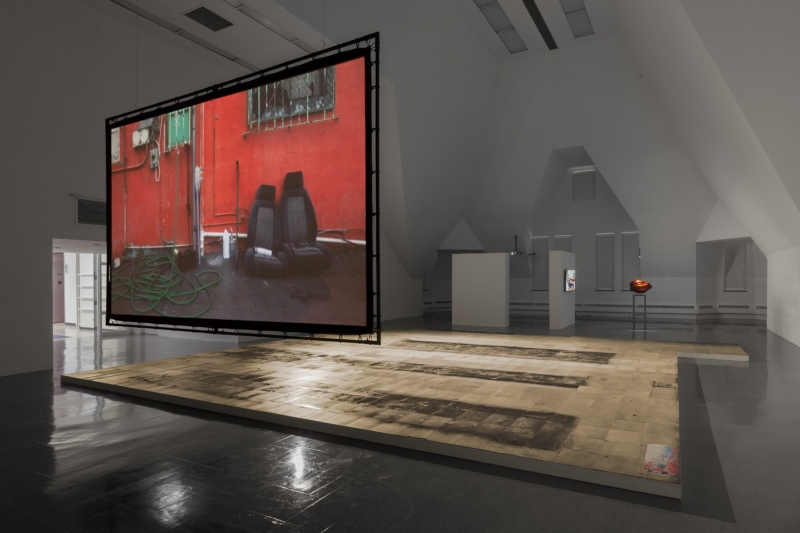
Shadi Habib Allah, Put to Rights, installation view, 2018. Photo: Useful Art Services

Shadi Habib Allah, Put to Rights, installation view, 2018. Photo: Useful Art Services

Shadi Habib Allah, 70 Days Behind Inventory (detail), 2018. Photo: Useful Art Services.
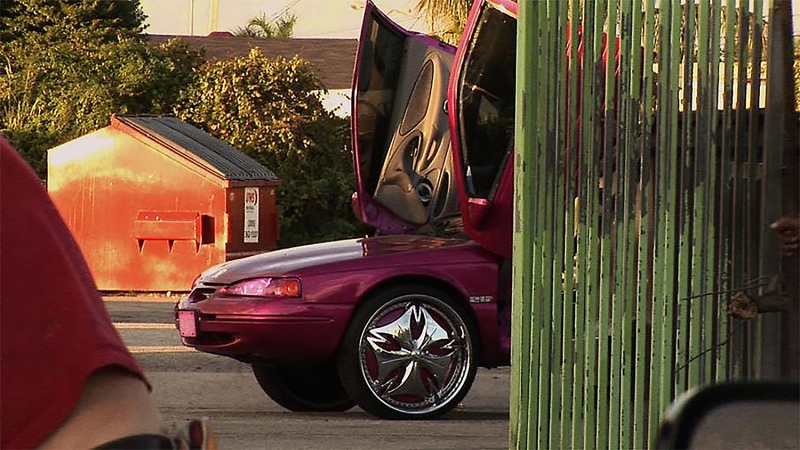
Shadi Habib Allah, The King and the Jester, video still, 2010. Courtesy of the artist and Rodeo, London.

Shadi Habib Allah, 5081 35, 2018. Courtesy of the artist.
Shadi Habib Allah works across film, sculpture, and installation, often drawing on a process of deep research and on-the-ground engagement in specific locales. Richly varied in form and focus, his projects run the gamut from traveling along illicit trade routes with Bedouin smugglers to recreating the bathtub of French Revolutionary radical Jean-Paul Marat. In works such as these, he homes in on economies of people, objects, and images, tracing various ways of navigating through these networks or investigating their structures.
Uniting Habib Allah’s practice is a distinctively ambiguous approach to his subject matter, tempering a deliberate and critical distance with a sympathetic, almost intimate tone. His projects are not documentary, per se—he takes an artist’s license in combining scripted and observational moments, and in non-linear edits—but offer sensitive and robust portraits of people and places that are often invisible or hidden from the mainstream. Habib Allah locates active circuits of goods and services that exist independently of, and at times elude or exploit, state-sanctioned systems.
At the Renaissance Society, two new works draw on the artist’s relationships in the Miami neighborhood of Liberty City, where corner stores once flourished as some of the only local options to buy groceries. Changes to zoning laws, however, brought in big-box chains, and in order to survive, many of these businesses shifted their primary exchanges to gambling and illegal food stamp transactions. A series of photographs, Dropping the 10th Digit, captures details of the hand-written receipts behind the counter, tracking individual customers’ records of debts and food stamps traded for cash. 70 Days Behind Inventory sees the artist taking up the vinyl flooring from one of these stores and relocating it into the gallery. Well-worn and stained, the tiles bear the markings of their previous life—imprints of the shelving units, a promotional decal—while demarcating a ghostly new space whose purpose is unclear. In both works, Habib Allah isolates specific nodes that nod to a complex shadow network of adaptation and endurance.
Presented alongside these, three previous video works trace systems of clandestine circulation and slippery subcultures. Set in Jerusalem, 30kg Shine is part ghost story, part horror film, part character study. These parallel stories unfold under the cover of darkness, weaving together multiple threads as they explore conditions of ownership in the face of conflict. S/N: 8F1GNA0021 features an interplay between a sculptural element—a camera commissioned by the artist to be purchased on the black market and given a new “legal” identity—and a video by which that camera records its own transformation. In documenting such a process, Habib Allah points to ways in which the circulation of illicit objects converges with more legitimate channels, and how this mirrors the practices of making and selling art. The artist’s 2010 work The King and the Jester was shot in a Liberty City auto body shop, offering fragmentary glimpses into the daily comings and goings of the workers: their frequently colorful banter, their meticulous attention to the custom cars, and the sprawling clutter of their garage. As with many of Habib Allah’s other works, the film blurs actual and staged scenes to examine questions of labor, value, and power as they play out both in this specific locale and in broader society.
Curated by Solveig Øvstebø.
Shadi Habib Allah was born in Jerusalem in 1977 and is currently based in New York City and Miami, FL. Recent solo exhibitions include Biscuits and Green Sox Maaike at Reena Spaulings Fine Art, New York (2016); Shadi Habib Allah: 30KG Shine at Rodeo, London (2015); and Evacuated Containers at Green Art Gallery, Dubai (2013). His work has been included in the 13th Berwick Film and Media Arts Festival, UK (2017); Tamawuj, Sharjah Biennial, UAE (2017); House of Commons at Portikus, Frankfurt am Main, Germany (2016); and Surround Audience, New Museum Triennial, New York (2015). Habib Allah received a BFA from Bezalel Academy of Arts and Design in 2003 and an MFA from Columbia University in 2010. He undertook a residency at the Delfina Foundation in London in 2016, received the Louis Comfort Tiffany Award in 2011, and was an inaugural recipient of Mophradat’s Consortium Commissions in 2018.
Put to Rights is presented in conjunction with a related project at the Hammer Museum in Los Angeles, September 22, 2018–January 20, 2019. Thanks to The Consortium Commissions.